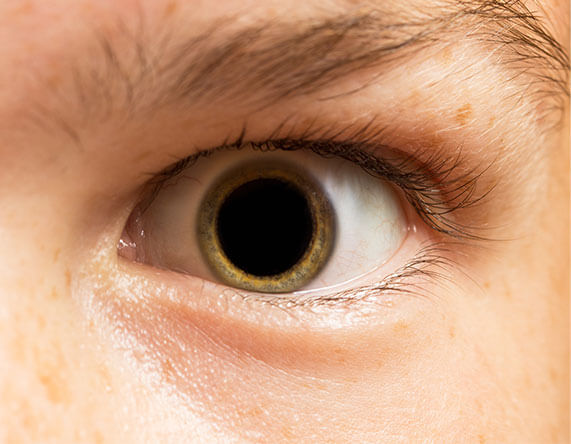

Pupil Dilation
You’ve probably had your pupils dilated before, but you may not have known why.
If you’ve ever had an eye examination, you’ve probably had your pupils dilated-when the doctor puts drops in your eyes and the pupil becomes larger than normal. You remember it being slightly uncomfortable and that you probably had to wear sunglasses for a few hours after. But why was it necessary? Is it always necessary in every eye exam? And what do those drops do, exactly?
Let’s start with the pupils themselves: your pupils are the round, black openings in the center of the iris. When your eyes are exposed to light (or lack thereof), your iris works to expand and contract the pupil to allow light into the eye. When a doctor shines a light directly into your eye during an exam, the pupil naturally contracts, making it difficult to see inside the eye. Therefore, the doctor will use drops to dilate the eye, making sure it stays wide even when exposed to light.
Eye dilation can assist your doctor in diagnosing diseases in their earliest stages, including macular degeneration, glaucoma, retinal detachment, high blood pressure and even diabetes. While your eyes are dilated your vision will be blurry and you probably won’t be able to read or focus on objects in front of you. You’ll also be sensitive to bright light, as your pupils are open and taking in more light than usual. This is why doctors recommend wearing sunglasses after an appointment. The effects usually last two to four hours, and can impact your ability to drive or even walk. If you know that dilation will be part of your exam, make arrangements for someone to drive you afterwards.
Not every exam requires pupil dilation, but if you haven’t had your pupils dilated for a few years or if you have retinal conditions, it’s an important part of the exam. Other factors that come into play when deciding whether dilation is necessary include your age, your overall health (whether or not you are diabetic, for example) and the reason you are seeking an eye exam. Sometimes it will be necessary for the doctor to look in the back of your eye to determine the cause of certain symptoms.
If you have questions about dilation during your exam, feel free to give Sterling Vision a call at 866-439-3588. You can also make an appointment online.
